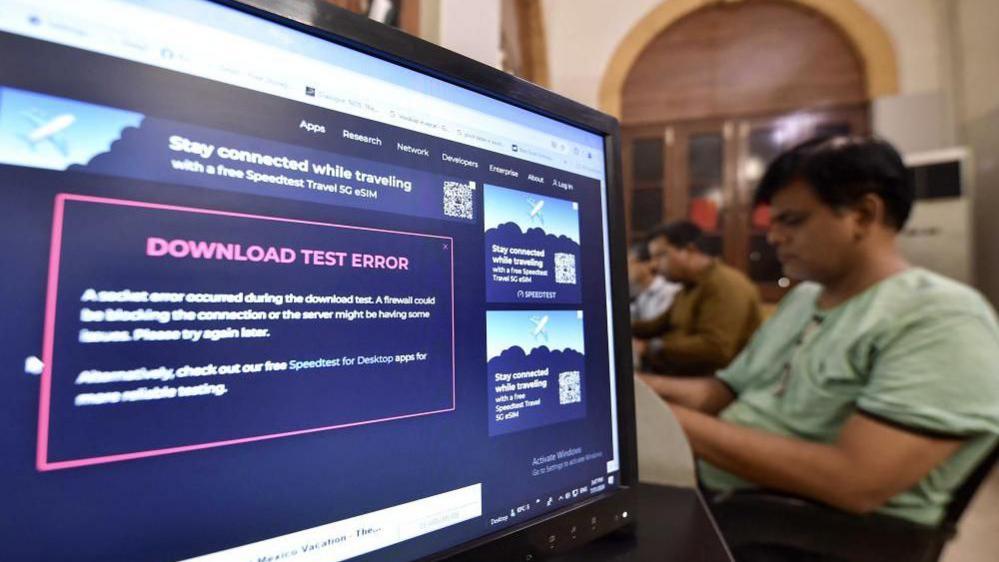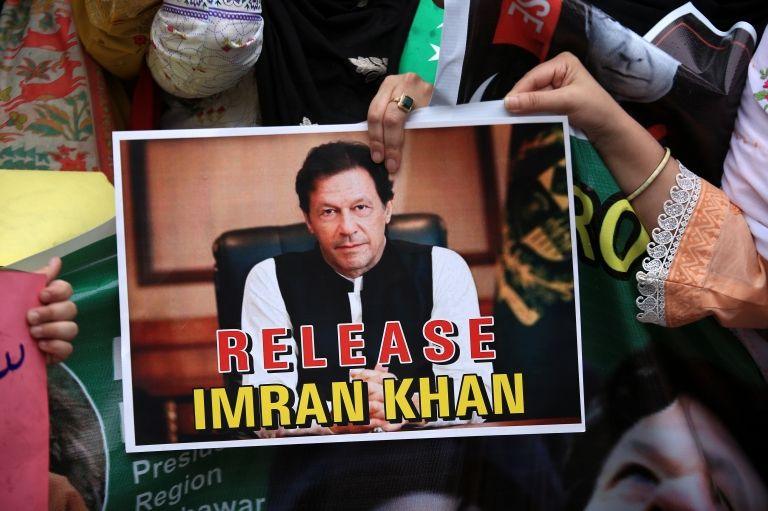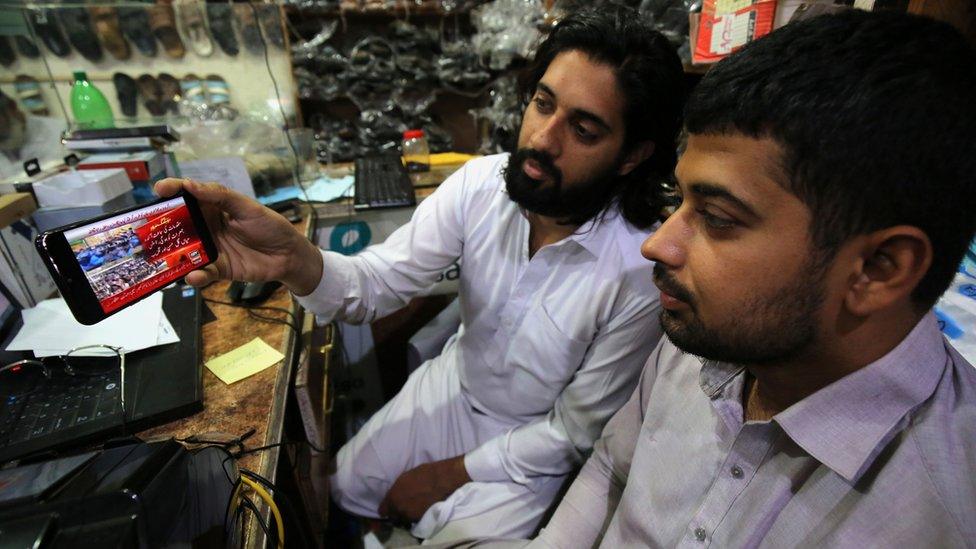Pakistan blames users for slow internet as firewall rumours grow

Some have accused officials of throttling the internet to quash dissent.
- Published
Pakistan has for weeks been experiencing painfully slow internet - but who, or what, is to blame is a matter for debate.
Activists say the state is building a China-style internet firewall as it looks to exert further control over the online space.
Officials have disputed these claims and instead blamed the widespread use of secure connections or VPN (virtual private networks) for the crawling speeds.
Shutting down the internet to crush dissent is a familiar move in regulators' playbooks in Pakistan and other parts of Asia.
Since the riots sparked by former prime minister Imran Khan last year, the government has blocked social media platforms and throttled connection speeds as the battle for public support spilled over from the streets to the digital space.
The micro-blogging platform X has been blocked since the February elections due to "national security" concerns.
Mr Khan's party supporters are big users of X and he is the most popular Pakistani on the platformn, with nearly 21 million followers.
But Minister of State for Information Technology Shaza Fatima said on Sunday that the government was not behind the recent slowdown.
She said her team has been "working tirelessly" with internet service providers and telcos to resolve the issue.
Ms Fatima said a "large population" had been using VPNs and "this strained the network, causing the internet to go slow".
She said reports that the state was behind the slow connections were "completely false".
However Ms Fatima said the government had been upgrading its systems to improve cyber security.
"It is the right of the government to [take such measures] given the cyber security attacks that this country has to go through," she said.
Activists however accuse the minister of "dodging criticism like a usual politician".
Shahzad Ahmad, director of local digital watchdog Bytes for All, told the BBC his organisation has "ample tech evident" to prove the existence of a firewall.
"It seems its purpose is to monitor online traffic... and limit dissemination [of information] in online spaces, particularly curbing political expression," Mr Ahmad said.
"Even if civil liberties don't matter, this is now about people's livelihood and the economy as well," said Farieha Aziz, co-founder of Bolo Bhi, a local non-profit that advocates for free speech online.
Business leaders and associations have warned that the slow connections could endanger Pakistan's business potential.
"The imposition of the firewall has triggered a perfect storm of challenges, with prolonged internet disconnections and erratic VPN performance threatening a complete meltdown of business operations," said the Pakistan Software Houses Association.
This could cost the IT sector up to $300 million, the association said, calling it a "direct, tangible and aggressive assault on the industry’s viability".
"A mass exodus of IT companies is not just a possibility but an imminent reality if immediate and decisive action is not taken," it said.
Activists have filed a petition before the Islamabad High Court, calling for access to the internet to be declared a fundamental right under Pakistan's constitution.
Additional reporting by BBC Urdu
- Published9 May 2024

- Published12 May 2023
